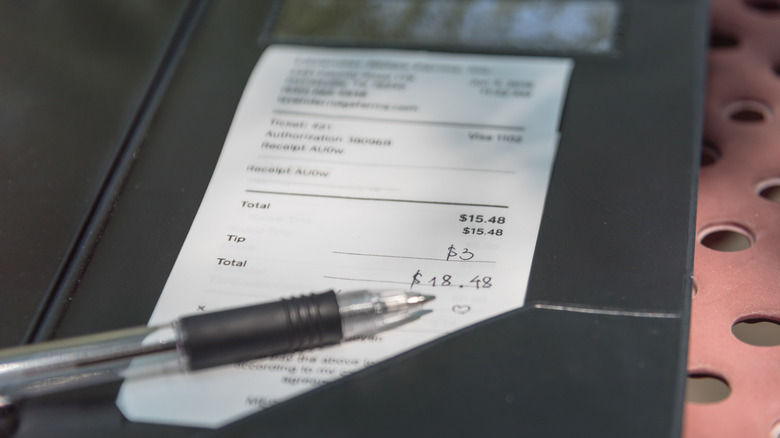How Some Quick-Service Chains Are Trying To Recruit Employees
If you've dined out in the past year or so as pandemic-related restrictions have been lifted, doubtless you've noticed that something is amiss in the food service sector. Regardless of whether it's a high-end temple of gastronomy or a roadside hamburger stand, restaurants across the nation are hurting for workers. The telltale signs are everywhere: harried staff, long waits, truncated menus, and drastically-reduced hours. What's more is that this isn't a new trend, but rather a pattern that emerged as businesses reopened. Forbes was reporting on the labor shortage and what restaurants were doing to try to combat it as far back as April 2021.
According to the National Restaurant Association, an industry trade group, April 2022 saw an additional net gain of 43,800 jobs at dining establishments nationwide, marking the 16th consecutive month of job growth in the field. Yet still, employers are in overdrive trying to attract and retain help as the busy summer months begin. As reported in January, businesses are dangling a raft of incentives in the hiring pool, many of them pulled from the same benefit packages non-service industry workers have enjoyed for years. These include paid leave, insurance and 401k inclusion, and mental health services.
Now though, certain restaurants are expanding a divisive tradition long-associated with the industry with the hope it will provide a quick — and affordable — way to attract applicants.
Can tipping save the day?
Time reports that the roots of the practice of paying gratuity to someone in a servile position lie in European aristocracy. And the obvious benefit to restaurant owners fueled the growth of the practice, which is still reflected in the federal minimum cash wage of $2.13 an hour (via Department of Labor.) Rarely though were employees at quick-service — i.e. fast food — restaurants tipped. Whether or not you agree with the wages, these workers have been considered non-tipped employees subject to the regular federal minimum wage, currently at $7.25 an hour.
However, many quick-service chains are now baking gratuities into their ordering protocols and systems in an effort to grow their staff. QSR magazine notes that Panera and Starbucks have added tipping to their mobile apps, and Sonic Drive-Thru's pilot tipping program brought in $12 million for employees in a matter of months. Beyond supplementing wages, employers are testing to see if tipping will help with overall staff retention, performance, and morale.
Whether you agree or disagree with the custom of tipping, as Bon Appétit explains, you should always assume it is a non-negotiable cost of the transaction rather than a nicety — and that the employee, or employees, serving you depend on that as a critical portion of their wage.

